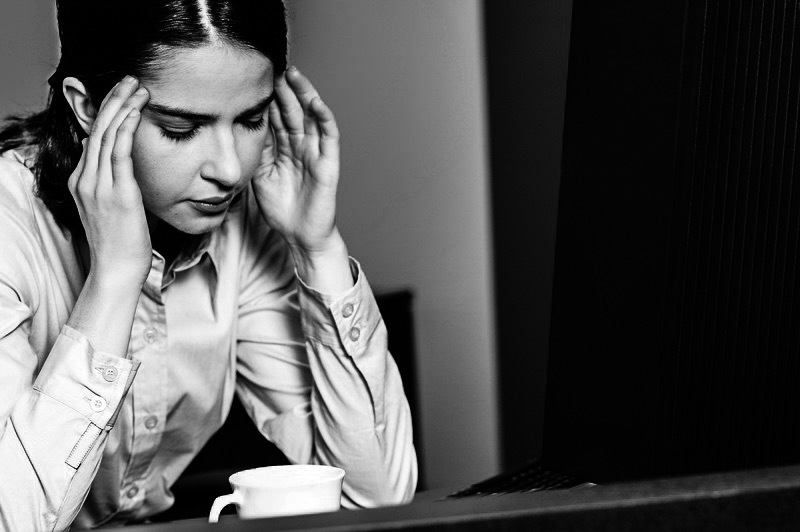Let’s get real for a moment. Life is a rollercoaster—full of highs, lows, and everything in between. But for someone living with anxiety, that rollercoaster can feel like it’s stuck on a never-ending loop of fear, doubt, and overwhelm. And here’s the thing: if you love someone with anxiety, you know how hard it can be to watch them struggle. You want to help, to fix it, to make it all better. But sometimes, the most powerful thing you can do is simply understand.
This post contains Amazon affiliate links, meaning I may earn a small commission if you purchase through my links, at no extra cost to you. Note: We aim to provide accurate product links, but some may occasionally expire or become unavailable. If this happens, please search directly on Amazon for the product or a suitable alternative.
Today, I’m going to share with you four truths that someone with anxiety wants you to know—truths that can transform the way you connect, support, and love them. These aren’t just words; they’re a roadmap to deeper empathy, stronger relationships, and a love that can weather any storm.
Because here’s the truth: anxiety doesn’t have to be a barrier. It can be a bridge—to greater understanding, to deeper connection, and to a love that’s unshakable. So let’s dive in. Let’s uncover what’s really going on beneath the surface. And let’s unlock the power of compassion, one truth at a time.
Are you ready? Let’s go.
What is anxiety and how does it affect people.
Anxiety is a feeling of fear, worry, or stress. It can be caused by any number of things, such as an experience with a traumatic event or another mental health condition. When anxiety attacks, it can cause feelings of intense fear and panic. This can make it difficult to do anything else for fear of having another attack.
People with anxiety often have difficulty relaxing and may feel overwhelmed and stressed out. They may also find it hard to eat or drink properly because they may feel so worried about what will happen if they do. This can lead to weight gain or problems with diabetes and other health conditions.
How do people with anxiety cope with their anxiety
People with anxiety often have different methods of coping which can vary depending on the situation. Some people try to relax using activities like yoga or meditation, while others might try to talk about their fears or worries with friends or family members. Some people stay in nature for refuge while others might go out and enjoy the world around them. In some cases, doctors may prescribe medication to help people manage their anxiety in a more effective way.
What are some challenges that people with anxiety face
There are many challenges that people with Anxiety face when trying to live life fully aware of its effects on their lives: from feeling over-whelmed and stressed every day to struggling socialize effectively due to the anxious thoughts that run through our heads all the time; there are plenty of obstacles that stand in the way of living an fulfilling life plagued by anxiety! However, despite these challenges, there is still hope! There are many ways for those who want to address their anxieties head-on without resorting to prescription drugs or therapy – there’s no need for shame or embarrassment when seeking support from professionals who understand how complex this problem really is!
How to cope with anxiety.
When you experience anxiety, it can be difficult to know how to cope. In order to understand and manage anxiety, it’s important to understand its symptoms and what causes them. Once you have a better understanding of your anxiety, you can begin to work on managing it.
Recognizing when anxiety is taking over
If you start to experience symptoms of anxiety disorders such as panic attacks or agoraphobia, it’s important to recognize that this may be a sign that your anxiety is becoming overwhelming. This means that instead of trying to deal with the symptoms alone, it might be more effective for you to seek help from a therapist or support group.
Finding support and advice
There are many ways to get support when you feel overwhelmed by your anxiety. You could try talking with a loved one or friend about your condition, going on online support groups, or visiting a mental health center where they can provide guidance and resources for you. Additionally, many cities and towns have crisis lines that can help those who are struggling with their Anxiety Disorder in a confidential setting.
How to reduce or stop anxiety.
The first step in reducing anxiety is understanding and accepting your own anxiety. A lot of people find self- care to be one of the most challenging aspects of managing anxiety. However, it can be a very effective way to manage anxiety. The following tips will help you reduce or stop anxiety through self-care:
- Find ways to relax and de-stress. Take a yoga class, read a book, or use a meditation practice to de-stress.
- Get regular checkups and screenings for mood disorders like depression and bipolar disorder.
- Connect with friends and family who can provide support during tough times.
- Follow healthy habits such as exercise, eating well, and avoiding smoking. Studies show that healthy habits can significantly decrease the anxiety levels.
Stopping anxiety through medication
If you’re facing a problem with Anxiety, it might be helpful to seek out professional help from an doctor or therapist who can prescribe medication that can help you live a more balanced life without experiencing any panic attacks or anxious thoughts.
- Be aware of side effects associated with each medication and make sure to speak with your doctor or therapist about them before taking it starting or stopping the treatment process if you have any concerns about their potential effects on your mental health .
- Make sure to follow all directions provided by the doctor or therapist regarding the use of their medications while taking them, as they may have other instructions not mentioned in this article that may also be helpful in managing your anxiety.
- Make sure to take the medication as prescribed and not over-the-counter medications or supplements that may have an opposite effect on your anxiety.
Many Suffer From Anxiety
Many people suffer from high levels of anxiety, (almost on a daily basis) from one thing or another.
And their pain is very often times misunderstood by those of us who live with them and interact with them all the time.
The following is a list of some of the things an anxious person truly feels but is not always able to or know how to communicate it.
A lot of compassion and understanding must exist in those people who love or care about a highly anxious person.
One thing I have always said before when you deal with negative or pessimistic people (who anxious people are often mistaken for) is that sometimes we need to love them enough to allow them to find their own way when they are ready.
I don’t think a person with high levels of anxiety is necessarily negative or pessimistic, but many times they do need to accept that they need professional help especially if nothing seems to improve or change for the better.
It is really hard to attempt to change a person and succeed at it. This is because for real change to happen, it has to start with the person who needs the help accepting that they need in the first place.
Once that happens, real change can begin.
From a person who suffered high levels of anxiety, speaking for everyone who suffers from it…
1. It’s Not Always About You
Let me tell you something powerful: when someone you love is struggling with anxiety, it’s not about you. It’s not about something you did or didn’t do. It’s not about how much they love you or don’t love you. Anxiety is an internal battle, a storm raging inside their mind, and it has nothing to do with you.
But here’s the thing—when they snap, when they withdraw, when they seem distant, it’s easy to take it personally. I get it. You’re human. But what they need you to know is this: they love you deeply. They’re not pushing you away; they’re just trying to survive the chaos in their head.
And let me tell you, that chaos is exhausting. It’s a constant loop of “What did I do wrong? What if I mess up? What if I’m not enough?” It’s overwhelming, and sometimes, they just need to sit and cry. They might lose interest in things they usually love. They might even snap at you, even though you don’t deserve it.
But here’s the truth: it’s not your fault. They’re not mad at you. They’re mad at their brain. They’re frustrated with the way anxiety hijacks their thoughts and emotions. And they’re so, so sorry if they ever make you feel unloved. Because the truth is, they love you more than words can say. They just don’t know how to deal with the storm inside.
2. Please Don’t Try to Talk Us Out of the Way We’re Feeling
Here’s the deal: when someone is in the grip of anxiety, the last thing they need is for you to try to talk them out of it. I know you mean well. I know you want to fix it, to make it better, to take their pain away. But here’s the truth: listening is more powerful than fixing.
Sometimes, all they need is for you to sit with them, to hold space for their fears, to let them know they’re not alone. When you try to talk them out of their anxiety, it can feel like you’re dismissing their feelings. It can make them feel broken, like there’s something wrong with them that even you don’t understand.
And let me tell you something: anxiety doesn’t respond to logic. You can’t reason it away. You can’t just say, “Stop worrying,” and expect it to work. What they need is your presence, your patience, your love. They need to know that you’re there, no matter what.
3. Part of Our Fears May Be Irrational, But It’s Hard to Let Go
Here’s the reality: anxiety is a master of deception. It takes small, insignificant things and blows them up into life-or-death scenarios. And here’s the kicker: they know it’s irrational. They know that embarrassing thing they said wasn’t really a big deal. They know their friends aren’t talking about them behind their back. They know their fears are exaggerated.
But here’s the problem: anxiety doesn’t care. It lives in that little voice that whispers, “What if this time, your fears are real?” It feeds on doubt, on uncertainty, on the part of their mind that can’t let go.
And let me tell you, that’s the hardest part. It’s not just about the irrational fears—it’s about the ones that feel real. The ones that keep them up at night, that make their heart race, that make them question everything. They’re not choosing to hold onto those fears. They’re just trying to survive them.
4. We Appreciate and Are Grateful for You
Let me leave you with this: they are so grateful for you. You are their rock, their safe place, their light in the darkness. They know how lucky they are to have you in their life, even if they don’t always show it.
Here’s the thing: anxiety can make it hard to focus on the positive. It can make them seem pessimistic, negative, or ungrateful. But that’s not who they are. Deep down, they’re optimistic. They love their life. They’re grateful for the good things—and especially for you.
But sometimes, anxiety gets in the way. It grips them so tightly that they can’t see past the fear, the worry, the doubt. And in those moments, they need you more than ever. They need your patience, your understanding, your love.
So here’s my challenge to you: be their light. Be the one who stays, who listens, who loves them through the storm. Because let me tell you, your love is powerful. It’s the thing that keeps them going, that reminds them they’re not alone.
And when they come out on the other side—and they will—they’ll look back and know: you were the one who never gave up on them. You were the one who believed in them, even when they couldn’t believe in themselves.
And that, my friend, is the greatest gift you can give.
Remember: Anxiety doesn’t define them. And your love? It has the power to transform them.
As you can see, highly anxious people need a lot of love, understanding, and just being there. It doesn’t mean they don’t care, that they are just pessimistic and negative.
Anxiety could be caused by a combination of chemicals in the body, hormones, and overall mental health, which includes past traumas.
Many things contribute to improving a healthier mental state which then affects the rest of the body. A combination of what we eat, and healing past difficult experiences. This often needs professional help in addition to lifestyle changes.
Conclusion
The way that anxiety affects the body is complex and varies from person to person. However, some common challenges that people with anxiety face include feeling overwhelmed, having no control over their life, and feeling out of control. In order to cope with these challenges and the people we love, it is important to understand anxiety and how to cope with it.
Additionally, recognition and advice can be helpful in reducing or stopping anxiety. Finally, there are many ways to reduce or stop anxiety through self- care and medication. By understanding both the individual’s challenges as well as the wider effects of anxiety, you can create a more balanced life for yourself.









